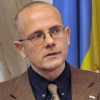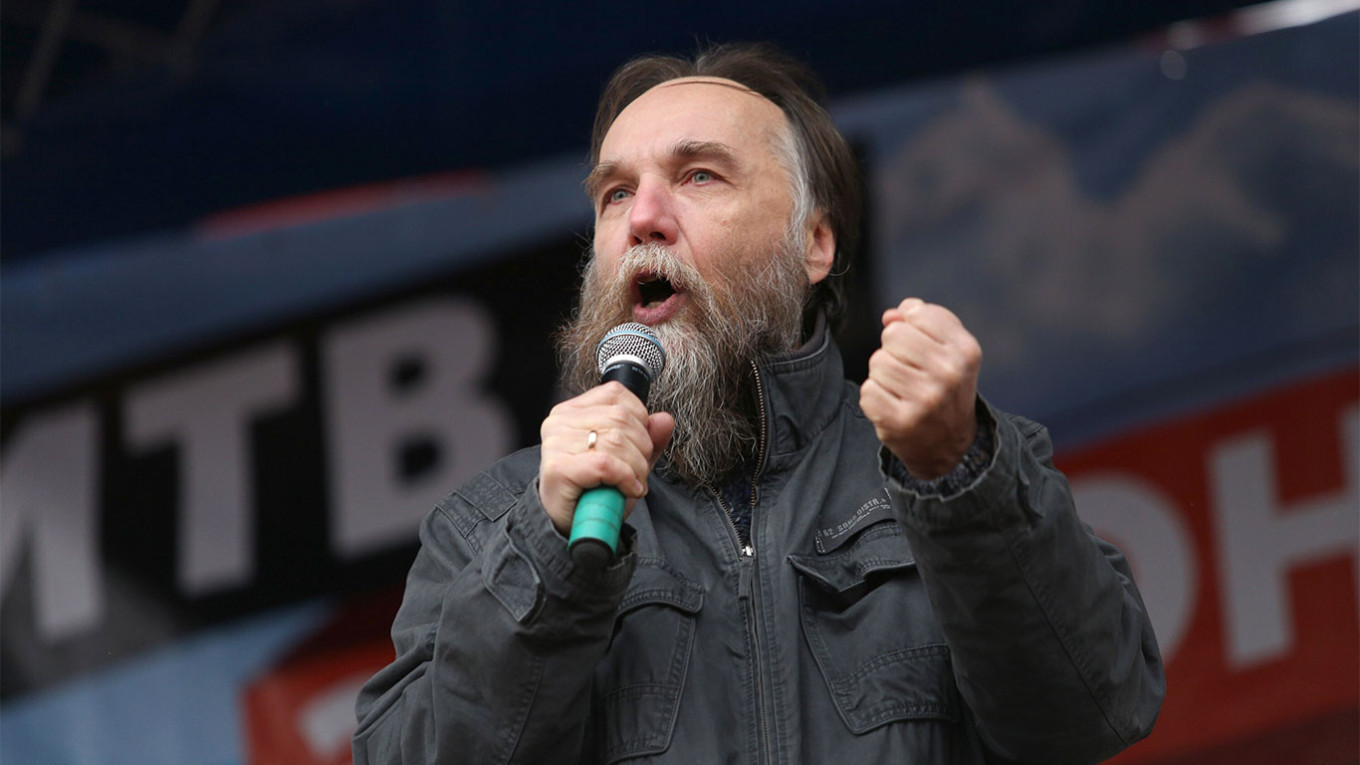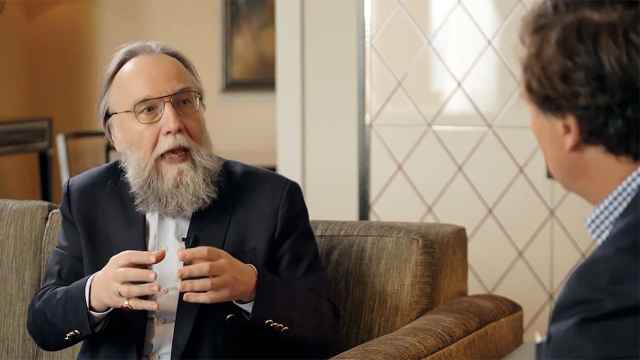One of the favorite protagonists of efforts to understand Moscow’s recent foreign policy is the flamboyant Russian ideologue Alexander Dugin, who recently said that Russia’s only true allies are the pariah states of Iran, North Korea and Belarus. With a long beard, sonorous voice and extroverted personality, Dugin is a telegenic speaker who easily fits into the archetypal mold of a Russian philosopher. He can be different things to his various audiences — a modern Dostoevsky, a right-wing Trotsky, an Orthodox monk, a second Rasputin, or an alternative Tolstoy.
Yet Dugin’s role in inspiring the Kremlin’s new aggressiveness, and the Russo-Ukrainian War in particular, is complicated. In contrast to how he is often portrayed, Dugin is neither a philosopher of intellectual novelty nor an ideologue with direct access to the Kremlin. He likes to pose as both and is promoted as a deep thinker with links to the Kremlin by his Russian and non-Russian followers. Oddly, some of his critics also take these claims at face value.
Dugin is an erudite polyglot who can express himself competently in several languages. He is well-read in social theory, esoteric literature, and normative philosophy. His political outlook accommodates a variety of approaches ranging from Samuel Huntington’s civilizationalism to Aleister Crowley’s Satanism, from far-left syndicalism to far-right traditionalism, from staunchly reactionary principles to expressly non-conformist ideas.
Efforts to understand his rhetoric have led to Dugin being called many things: a conservative, Marxist, imperialist, fundamentalist, geopolitician, and more. Most of these labels are apt, in one way or another. Yet by themselves, they are imprecise. When labeling his own ideology, Dugin invents new constructs like Neo-Eurasianism or Fourth Political Theory designed to intrigue readers in Russia and beyond.
Moreover, he is an engaging speaker. In conferences, talk shows, and interviews, he comes across as clear-eyed, eloquent, and responsive. He frankly admits his extremely nihilistic position. Dugin openly calls for a worldwide anti-liberal revolution, constantly predicts the end of international order, and readily explains his total disgust for the West.
Back in the 1990s, Dugin unashamedly presented himself as a fascist. He repeatedly praised representatives of German Nazism and its allies. Recently, though, Dugin has refrained from publicly expressing his sympathy for historical European fascism. He poses now instead as an anti-fascist, in line with Moscow justifying its invasion of Ukraine with the claim that it needs “denazification.”
Dugin and his various think tanks’ output over the last 35 years has been enormous. They have published dozens of books in various languages, written hundreds of articles, and made thousands of statements in various formats across a wide variety of Russian and non-Russian media outlets, public venues, and social networks. The staggering volume of Dugin’s statements has made him famous despite their limited depth, questionable quality, and bizarre claims about, for instance, the KGB being an agent of anti-Russian Atlanticists.
Dugin is now perceived around the world as one of the most noteworthy representatives of contemporary Russian political thought. His omnipresence, bellicose discourse, and rhetorical skills have led many observers to see him as a mastermind (or even the mastermind) behind the resurgence of Russian imperialism and Moscow’s anti-Western turn, earning him the nickname “most dangerous philosopher” in recognition of his perceived influence.
Dugin’s philosophical pronouncements and political ideas are, however, merely Russian translations or reformulations of various older non-Russian anti-rational and anti-individualistic philosophical discourses. Anyone familiar with classical geopolitics, integral traditionalism, international occultism, the German Conservative Revolution, French post-Modernism, European New Right, as well as some other alternative schools of thought will experience constant deja vu when listening to Dugin.
Readers not familiar with these concepts may perceive him as an original Russian philosopher. Yet what he proclaims as his own neo-Eurasian or fourth theory is largely copy-pasted from disputed and marginal theorists and philosophers from the West he hates so much. The term “neo-Eurasianism” seems to refer to a reputed interwar Russian diaspora intellectual movement, the Eurasianists.
In fact, Dugin’s ideas resemble only superficially these older Russian ideas about a third continent between Asia and Europe. “Neo-Eurasianism” is instead inspired by German proto-fascist thinkers like Karl Haushofer or Carl Schmitt, who described an eternal enmity between continental and sea powers. In the context of neo-Eurasianism, Russia stands as a traditionalist Eurasian land-based tellurocracy like the Mongol Empire, subsuming and integrating neighboring states. Meanwhile, the nations of the West are liberal Atlanticist sea-based thalassocracies, which expand their spheres of influence through bodies such as NATO. Dugin’s hodgepodge of nihilistic fantasies, fascist dreams, and totalitarian plans contains little new for anyone who has studied ultra-nationalist, illiberal and anti-democratic thought.
A somewhat similar deception exists concerning Dugin’s alleged frequent influence on Russian political decision-making. Certainly, some of the people around President Vladimir Putin, like his longtime KGB associates Viktor Cherkesov and Vladimir Yakunin, have shown documented interest in Dugin’s writings. But this influence is easy to exaggerate.
It is true that in the past, some of Dugin’s most extreme statements previewed today’s rhetoric from the Kremlin’s propagandists. In 2014, Dugin infamously called on Russians to “kill, kill, kill” Ukrainians. In 2015, he asserted “war is [Russia’s] homeland, our element, our natural and native environment, in which we must learn to exist effectively and victoriously.” Other older statements by Dugin appeared, at their time, outrageous. Today, they sound much less surprising.
Nevertheless, the increasing congruence between the philosopher’s discourse and the Kremlin’s rhetoric, especially since 2022, should not be overstated. This verbal alignment is real, yet not sufficient enough to claim there is a straightforward causality between Duginist ideas and Putinist policies. In recent decades, Dugin has proven to have a better premonition as to where post-Soviet Russia is going than many academic researchers. He has been a prophet rather than an instigator of these tendencies.
What Dugin and his followers have contributed to, since the 1990s, is an increasing poisoning of Russian media and intellectual discourse with black-and-white, conspiratorial, and morbid ideas. Their stories about an age-old Western enmity toward Russia, the inevitable final battle between the traditional land and liberal sea powers, and the supposed subversion of Russian society by evil foreign forces, etc. have indirectly contributed to the radicalization of Putin’s regime and policies. In doing so, Dugin and his followers have been assisted by dozens of other reactionary, fascist, racist, and ultra-nationalist Russian writers and commentators.
Together, they have performed something similar to what Germany’s so-called Conservative Revolution did during the interwar Weimar Republic. Rather than influencing parties, politicians, bureaucrats, and diplomats directly, Dugin and his followers have created an atmosphere in which violent internal repression and armed foreign aggression seem natural. Only a few Russian decision-makers repeat Dugin’s ideas verbatim and even fewer have read his books. Furthermore, given Dugin’s earlier affirmations of fascism, few Russian officials would admit to being impressed by him.
Notwithstanding, the Russian extreme right as a whole was able to make a crucial contribution to Russia’s anti-Western turn in 2007, intrusion into Ukraine in 2014, and large-scale aggression in 2022. Dugin and similar right-wing drummers have relentlessly voiced openly imperialistic, radically nationalistic, and paranoid anti-Western ideas over more than three decades.
When Putin announced his turn against the West, annexed Crimea, and launched an invasion of Ukraine, many Russians did not need an explanation why. Russia’s extreme right, with Dugin as its philosophical patriarch, had already given them one.
A Message from The Moscow Times:
Dear readers,
We are facing unprecedented challenges. Russia's Prosecutor General's Office has designated The Moscow Times as an "undesirable" organization, criminalizing our work and putting our staff at risk of prosecution. This follows our earlier unjust labeling as a "foreign agent."
These actions are direct attempts to silence independent journalism in Russia. The authorities claim our work "discredits the decisions of the Russian leadership." We see things differently: we strive to provide accurate, unbiased reporting on Russia.
We, the journalists of The Moscow Times, refuse to be silenced. But to continue our work, we need your help.
Your support, no matter how small, makes a world of difference. If you can, please support us monthly starting from just $2. It's quick to set up, and every contribution makes a significant impact.
By supporting The Moscow Times, you're defending open, independent journalism in the face of repression. Thank you for standing with us.
Remind me later.








